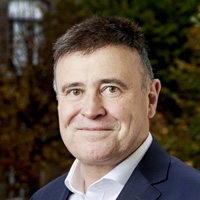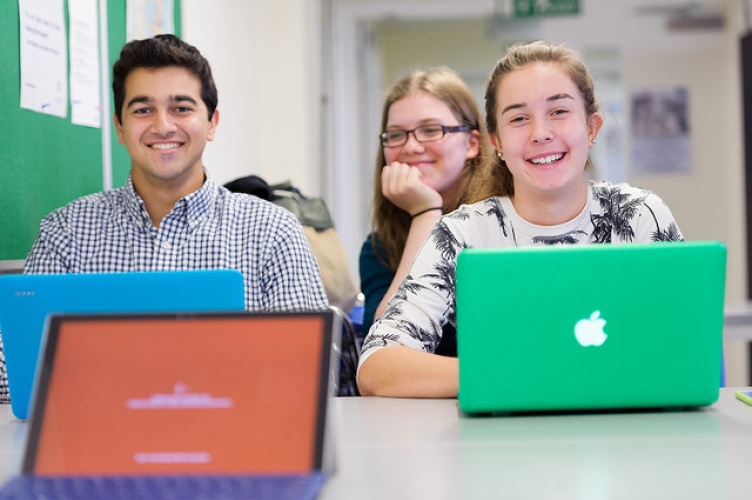ESCP Business School's multi-campus model:
an agile response to the Coronavirus
As a pan-European school where students develop a substantial capacity for adaptation, ESCP Business School relies on its phygital transformation strategy to respond in real-time to new conditions related to the Covid-19.
As soon as the Turin campus closed, 10 days ago, the School was able to set up an online response that may be extended to all its campuses if required by national guidelines. “ESCP, with its habit of online courses and its international soul, has adapted quickly” confirmed La Stampa.
The school's multi-campus structure has enabled it to be a forerunner in teleworking and e-learning.
ESCP students are accustomed to new forms of face-to-face and distance collaborative work.
 Frank Bournois
Frank Bournois
Dean of ESCP
“A collaborator’s talent is not only a question of performance or technological know-how. What counts above all is being collaborative, and able to work with everyone. The best potentials share and unite, they thrive in open ecosystems, and, in this respect, the ESCP model was designed as an in-vivo laboratory of the real world. We are experiencing this today, at a particularly serious time, when we must adapt to ensure both the safety of our students and the continuity of their academic careers. These measures facilitate the deployment of digital solutions in the coming weeks, so that even with varying numbers of closed campuses, we may continue to function.”
People are at the heart of the digital system
The already existing online courses were mainly dedicated to students who could not physically come to the different ESCP campuses.
With the COVID-19 outbreak, the system was extended to all students in Turin in record time. In addition to mere video courses, ESCP professors may exploit a full range of tools to deploy a real augmented pedagogy.
The Bachelor programme, led by Marion Leparmentier, Director of Studies (based in Paris), and Professor Fabrizio Zerbini, Associate Dean of the programme (currently in Turin) is the pioneer of this system.
 Marion Leparmentier
Marion Leparmentier
Director of Studies (Bachelor BSc in Management)
“Closing the Turin campus immediately impacted all students, including the 180 Bachelor students, who were unable to take their exams.
In both Turin and Paris, there was an urgent need to ensure the continuation of learning activities, especially as Professor Fabrizio Zerbini and a few students in Paris were in quarantine.”
 Sergio Vasquez Bronfman
Sergio Vasquez Bronfman
Associate Dean for Digital Learning
“With Blackboard Collaborate Ultra we could organize fully online courses from Monday, March 2 on for our Turin campus. The professor shares his screen with the students and can dialogue with them either orally or in writing. At the beginning of the coronavirus crisis, Collaborate Ultra also made it possible to offer hybrid courses in Paris and London, simultaneously attended by on-site and by confined online students.”
Professor Emmanuel Zilberberg, one of the pioneers of digital interactions at ESCP has developed an expertise in the use of questionnaires in the classroom
 Prof. Emmanuel Zilberberg
Prof. Emmanuel Zilberberg
Assistant Professor in Management Accounting
“In-class on-line questionnaires during courses allow to map the state of collective understanding, of both on-site and online students, at each moment. When collected opinions diverge (a socio-cognitive conflict), it is possible to organize peer discussions not only with the students in a classroom but also with online students, by bringing them together in break-out rooms.”
ESCP is preparing to take its plan for phygital transformation to the next level
 Anthony Hié
Anthony Hié
Chief Information & Digital Officer
“This plan is transversal and multi-campus, and associates physical places (campuses), digital ubiquity, and human intervention. The purpose is multiple: e.g. to allow optimized personalization of online courses, or to identify, at an early stage, deficiencies in a discipline in order to offer targeted revisions to ensure success throughout the curriculum.”
While applying the guidelines set forth by six different governments and continually adapting its federal academic rules to ensure the health and well-being of its students, ESCP experiments in real-time to deliver its consistently high-quality instruction to 6,300 students.
